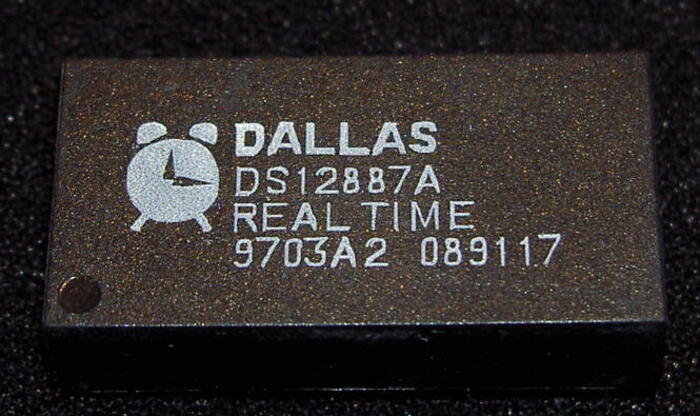

The manufacturers of many old computers used modules that contain some
RAM, a clock and a 3 V Lithium-manganese dioxide battery inside a
potted plastic housing.
An example is the Dallas DS12887A on the picture above.
Many old machines are using such a module not only as clock, but as
NVRAM for setup data too.
This means the empty battery does not only stop the clock, but may
render the computer unusable in worst case.
In most cases such modules are not soldered onto the mainboard, but
mounted in a socket instead. This makes replacement easy (in theory).
The problem is that electronic components have a limited timeframe
for production, before they are discontinued and replaced by a (more
or less) compatible successor part.
If the compatibility of the successor parts is not good enough, it
is possible to use new old stock (of the old obsolete part).
But sooner or later the batteries of all that parts will be empty too.
It is important to remember that the electronic circuits in the modules are still functional, only the batteries are not accessible for replacement.
Before removing the module from the mainboard, check the orientation. Take a picture if the marking on the mainboard is missing.
I found this module on a Tyan S1668 PC mainboard:
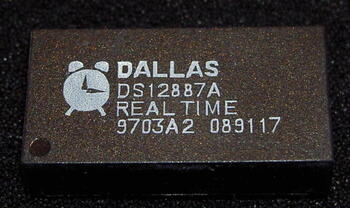
(Click to enlarge)
The battery is connected internally to the two missing pins 16 (-) and 20 (+).
Use a small milling cutter to access the battery pins 16 and 20 (they are internally bend up):
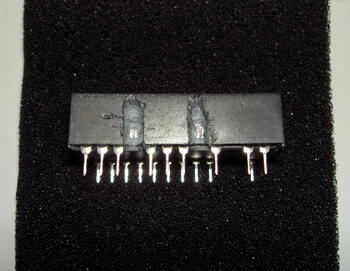
(Click to enlarge)
Measure the voltage to verify that the internal battery is really empty.
Now disconnect the internal battery from pin 16:
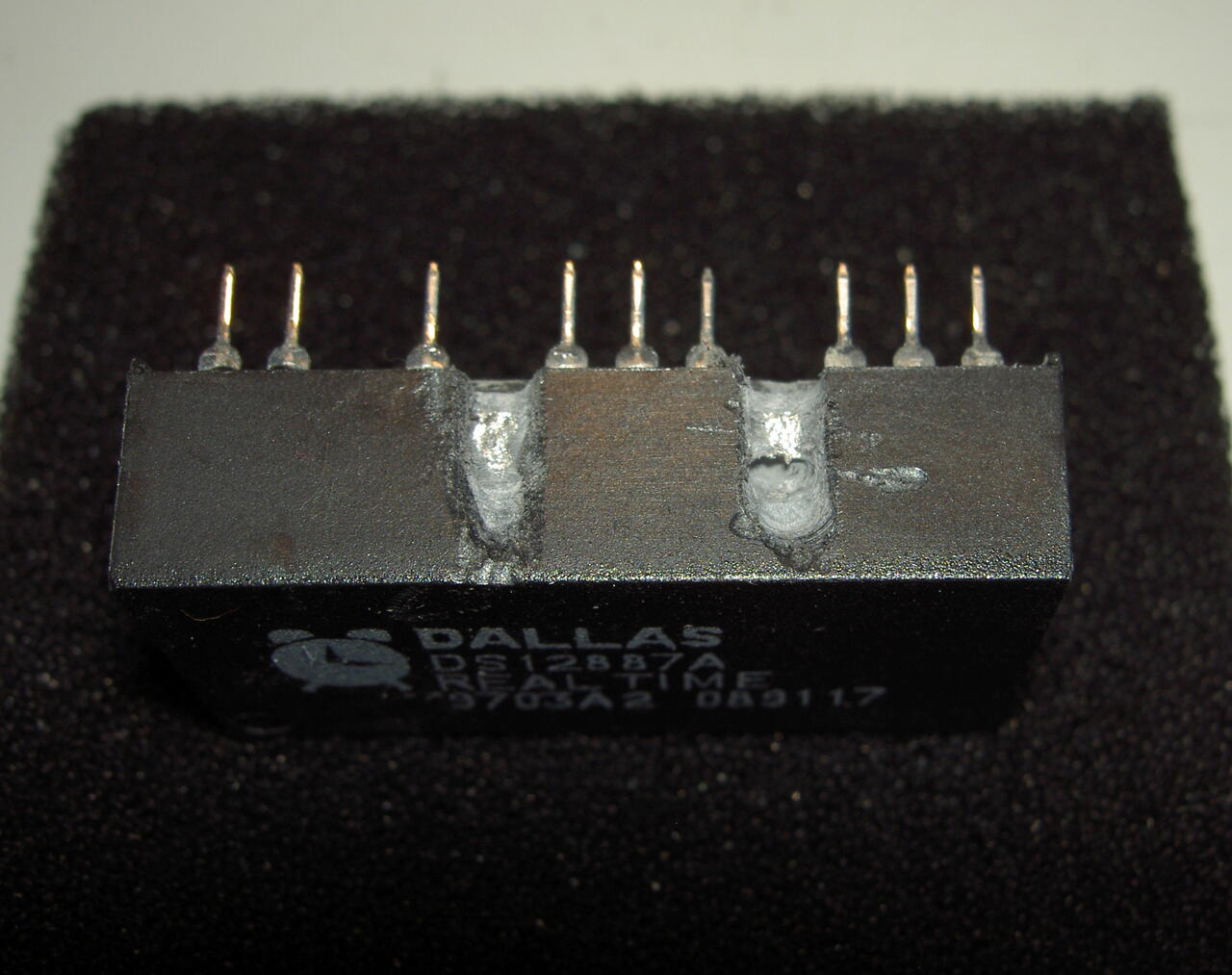
(Click to enlarge)
Now solder wires for the new (external) battery to pins 16 and 20:
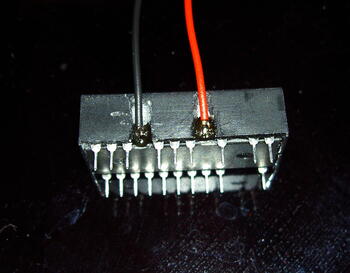
(Click to enlarge)
I have used a CR123A cell from Panasonic as replacement battery:
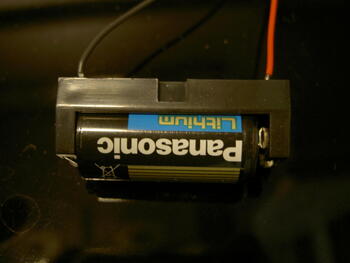
(Click to enlarge)
I found this module in Sun Ultra1E workstations (with sun4u architecture).
Opening the case with a milling cutter reveals the (empty) coin cell on top of the chip:
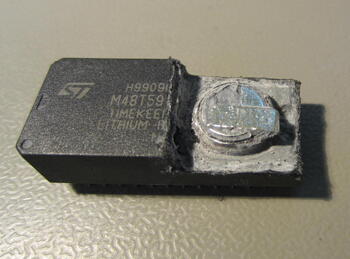
(Click to enlarge)
The internal battery was removed and replaced with a CR1/2AA cell that was glued into the case:
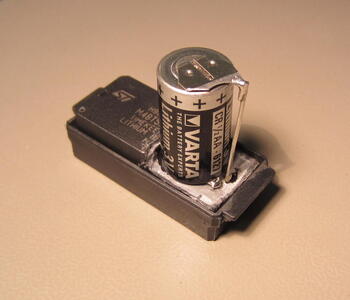
(Click to enlarge)
The method to only access the battery pins (similar to the Dallas chip above) can be used too.
The module must be opened on the side for this chip (between pins 12 and 13):
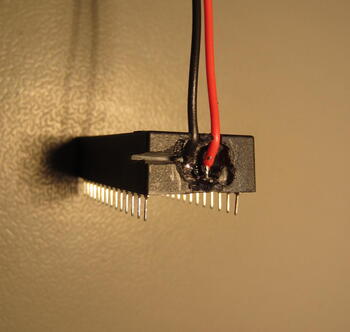
(Click to enlarge)
If the wires are soldered upwards and close to the module, the Sun plastic holder can be mounted again:
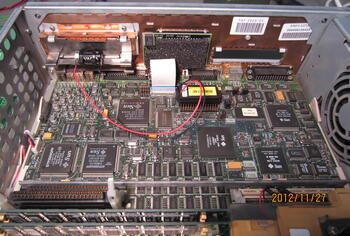
(Click to enlarge)
Note that some Sun machines store more information in the NVRAM than PCs, e.g. the Ethernet MAC address of the onboard NIC.
Read
Frequently Asked Questions about Sun NVRAM/hostid
to get your Sun machine working again.
(Homepage no longer available, an older version can be found in the section "Links" below)
Some links to other pages with similar topics: